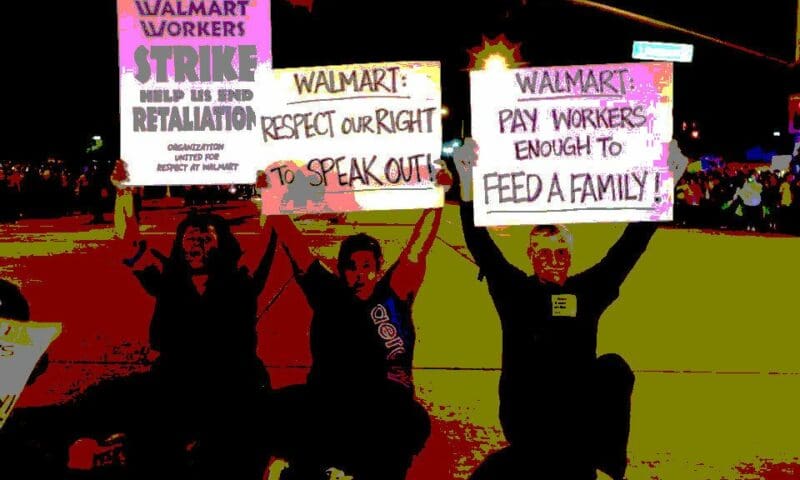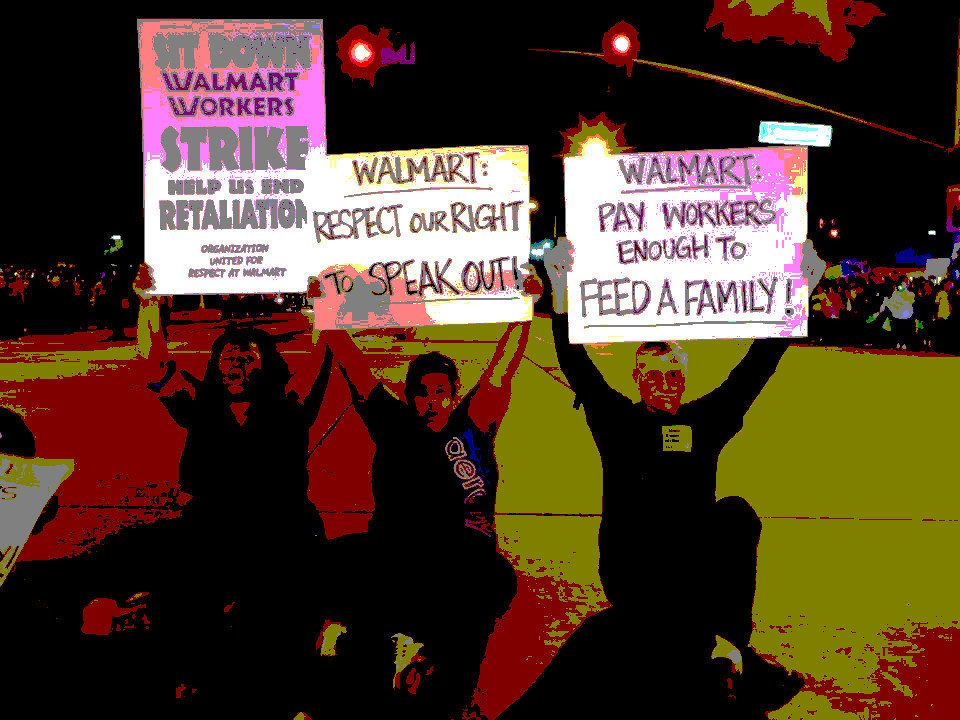Earlier this month I sat down with actor Ed O’Neill, best known for his role as Al Bundy in the Fox TV Network sitcom, Married With Children, and who is currently starring in ABC’s award-winning comedy, Modern Family, which will be honored in December at the Los Angeles Alliance for a New Economy’s 2014 City of Justice Awards Dinner. Here’s the first in a series of clips from that interview. (Full transcript here.)
» Read more about: Watch Now: Ed O’Neill on Pushing America’s Hot Buttons »


This month the U.S. and China reached an historic and unexpected agreement on climate change. As a follow-up, China announced that it will cap its coal consumption by 2020. The U.S. and China are the largest emitters of greenhouse gases in the world, and the world’s largest economies. What does this mean for us?
Climate change isn’t something that we can wait 50 or 100 years to deal with – it is happening right now. The U.S. is seeing more severe weather, unprecedented sea level rise, loss of habitat and expanding ranges of pests and diseases.
The primary driver of climate change is the carbon that humans put into the atmosphere and the biggest producers of carbon are coal-fired power plants that generate electricity. China is now the world’s largest user of coal.
In the climate change agreement, China promised to reach its peak emission of carbon and other greenhouse gases,
» Read more about: U.S., China Clear the Air With Historic Agreement »


The two uniformed cops from Southwest Station who’d remained behind stood off to one side as residents of the Eden Arms and their neighbors continued to speculate about the shooting. Various theories were voiced but there was agreement of a sort on some facts derived from the eyewitnesses. A late model Toyota, or it could have been a Honda, rounded the far corner at a normal rate of speed. The vehicle slowed as it approached mid-block where the Arms was located. A smoked passenger window slid down some and a barrel of a gun was then rested on the window. Blam, blam, blam went the gunfire and the car roared away. The odd thing was, the weapon didn’t seem aimed at the few pedestrians around. Rather it seemed to be pointed upward.
The cops speculated the bullet that took out the window to the laundry room was a ricochet, possibly off the metal casing of the switch box on one of the telephone poles.
» Read more about: The Dixon Family Chronicles: “A Little Past Seven” »


Thanksgiving is our national food-focused holiday–but Los Angeles has an all-year-round reputation for food obsessions: Paleo diets. Veganism. Juicing. Fasting. Fusion food trucks, kimchi pizza, chorizo-filled potstickers with duck sauce reduction (yes, that is a real recipe).
What gets a lot less foodie press, though, is the City of Los Angeles’s innovation in creating one of the most progressive food policies in the nation.
Cities around the country have established programs to improve the availability of nutritious food for residents and set ethical and environmental standards for the suppliers to the multitude of public institutions that feed millions every year. In 2012 the city established the L.A. Food Policy Council to develop an equitable food policy for Los Angeles and to answer some key questions: How does a city that buys tons of food every year define “locally grown” food? How do purchasing policies sustain small farmers?
I recently interviewed one of the country’s unabashed progressive leaders, New York Mayor Bill de Blasio. Our discussion ranged from Ronald Reagan’s legacy to the failures of contemporary Democrats to stand up for their values. “We have an income inequality crisis in this country that will endanger the future of the entire United States of America,” de Blasio told me. We present here the first in a series of clips from that interview. (Full transcript here.)
» Read more about: Watch Now: Bill de Blasio on the Leadership Role of Cities »


It’s been more than 50 years since Cesar Chavez and Dolores Huerta founded the United Farm Workers union. In the ensuing decades, broader activism and increased awareness of the importance of those who grow and harvest our food have resulted in better wages and living conditions for some workers in our state and others, in spite of public indifference. The farmworkers’ story of struggle and of battles won (and those yet to be fought) are told in Food Chains, an unsparing documentary that screened Sunday at Laemmle’s Playhouse 7 in Pasadena under the sponsorship of the nonprofit Food Chain Workers Alliance.
The film chronicles the exploitation and brutal poverty — and in some instances, forms of enslavement— that plague American agriculture. Food Chains is directed by Sanjay Rawal, produced by Rawal, Smriti Keshari and Hamilton Fish, narrated by Forest Whitaker, and executive-produced by actress Eva Longoria and activist/filmmaker Eric Schlosser (Fast Food Nation);
» Read more about: American Gulag: A New Film Blasts Farm Labor Conditions »
Steve Clemons is Washington editor-at-large for The Atlantic, whose spin-off site, CityLab, covers new ideas and issues facing urban metro areas worldwide. Each year CityLab convenes a gathering of global city leaders in person to discuss innovative ideas and projects that are emerging in urban communities. This year CityLab’s conference was held at the Ace Hotel in downtown Los Angeles. Shortly afterward, Capital & Main spoke to Clemons.
» Read more about: Up from Gridlock: The Atlantic’s Steve Clemons on Government »



Earlier this month two dozen workers, clergy and other community folks sat down in the aisles of the Walmart store in Pico Riviera, then moved into the streets, where they were promptly arrested. Why would any group of people – much less some not even directly involved in working at Walmart– voluntarily put themselves in a situation they know will lead to their arrest? Because they feel the injustice of minimum wage jobs, whose schedules are unpredictable and deliberately fall just short of offering enough hours to provide health care benefits and paid sick days. These are among other practices that stores like Walmart refuse to rectify.
Without other ways to redress these grievances, people undertake nonviolent civil disobedience. They decide to deliberately break some small law rather than ignore a larger injustice, as Martin Luther King Jr. argued for during the civil rights movement. They break the law,


Nearly a decade ago, L.A. labor leader María Elena Durazo organized the Immigrant Workers Freedom Ride, a national caravan that brought immigrants and their supporters around the country to Washington, D.C., to push for immigration reform. In the ensuing years, there has been much talk but no action on extending legal protections to the country’s millions of undocumented immigrants.
All that changed yesterday, when President Barack Obama announced that he would sign an executive order granting temporary protection to as many as 5 million immigrants. Advocates were elated, while critics sharpened their knives and prepared for a PR counteroffensive.
Capital & Main spoke by phone with Ms. Durazo this morning shortly after she arrived in Las Vegas to join the President as he signs the executive order into law.
Capital & Main: What do you think of President Obama’s executive order granting temporary protection to undocumented immigrants?
» Read more about: Immigration Advocate María Elena Durazo on Obama’s Executive Order »


 California voters passed a groundbreaking ballot measure this month that reduces penalties and sentences for nonviolent, “nonserious” crimes. Now, the private industry is responding to these changes in public attitudes and declining prison populations by opening up new lines of business.
California voters passed a groundbreaking ballot measure this month that reduces penalties and sentences for nonviolent, “nonserious” crimes. Now, the private industry is responding to these changes in public attitudes and declining prison populations by opening up new lines of business.
A new report released by American Friends Service Committee (AFSC), Grassroots Leadership and the Southern Center for Human Rights, highlights the expansion of the private prison industry into other profitable and growing areas in the criminal justice system: prison and jail subcontracted medical care; forensic mental hospitals and civil commitment centers, as well as “community corrections” programs such as probation and halfway houses.
The report authors have named this new expanded private corrections industry the “treatment industrial complex” via the report.
As other states follow California’s lead and pass laws reducing mandatory minimum sentences, the report urges policy makers, advocates and others to ensure that private corporations can’t profit from any part of the criminal justice system.